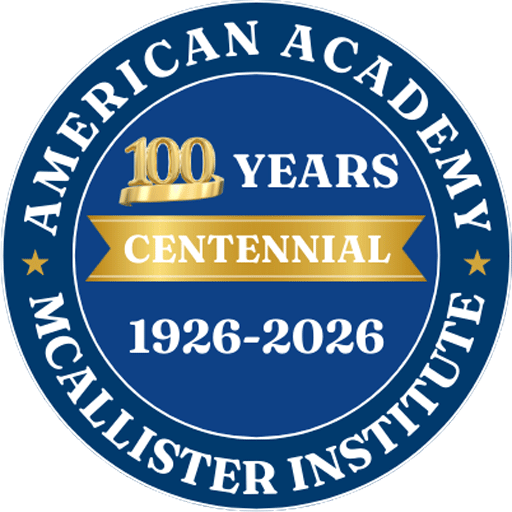
A mortuary science degree is the foundation of a meaningful and versatile career in funeral services, but the job opportunities are not always immediately obvious. The field of funeral services combines numerous areas of study, including embalming, restorative art, business, and grief counseling into one multi-faceted career. The choice of where this career leads depends in large part on the skills, credentials, and vision of each graduate.
This article reviews the options for graduates after earning their mortuary science degrees, including traditional funeral homes, specialized medical roles, and more. The opportunities in funeral service are plentiful and growing, with more people every year discovering the value and potential of entering this rewarding field.
What is a Mortuary Science Degree?
A mortuary science degree prepares individuals to become licensed funeral directors, embalmers, and other professionals specializing in after-death care. This program blends multiple fields of coursework into one, including embalming, law, psychology, ethics, business, restorative art, and counseling.
In most states, a mortuary science degree is required to qualify for licensure as a funeral service professional. In some states, such as Colorado, licensing is not required though voluntary certification is available. In others, including Arkansas, Connecticut, Louisiana, Ohio, and South Carolina, only certain roles, like that of an embalmer, require licensing though the amount of education required can vary. Always check your state’s requirements when applying for funeral service positions.
Traditional Career Settings for Mortuary Science Graduates
The potential career settings for a student pursuing a mortuary science degree are as vast as the areas of study, including:
Funeral Homes
Funeral homes are the most common work setting for graduates, encompassing roles such as funeral director, embalmer, funeral assistant, and general manager.
Crematories
Crematories oversee cremations, including operating the required machinery and managing compliance records. These locations are often closely affiliated with local funeral homes.
Cemeteries or Memorial Parks
Workers at cemeteries or memorial parks handle pre-need sales, manage cemetery operations, and may perform monument services. Mortuary science degrees are not always required for these roles, but candidates with relevant experience and licenses will be better equipped to perform their tasks successfully and may be eligible for more prestigious roles.
Alternative and Specialized Career Paths
While these are common job roles for mortuary science graduates, many alternative and specialized career paths are available, including:
Medical Examiner’s Office
Employees of a medical examiner’s office assist in autopsies, body preparation, and case documentation. Being hired here usually requires relevant experience and, depending on the role, may also require further forensic training and certification.
Organ/Tissue Procurement Organizations
These organizations hire mortuary science graduates as donation coordinators and surgical recovery specialists. These roles require deep knowledge of human anatomy and regulated procedures, which is required for mortuary science certification.
Mortuary Transport and Removal Services

These specialized removal teams handle the transportation of deceased individuals from homes, hospitals, accident scenes, and more, which is critical behind-the-scenes work in the field of funeral service.
Forensic and Disaster Response Teams
When disaster strikes, many mortuary science graduates are among the responders that assist in mass-fatality management, body identification, and other essential services. These jobs can sometimes be linked to federal or state agencies like DMORT (Disaster Mortuary Operational Response Team).
Anatomical Donation and Education Programs
These jobs involve working with universities or institutions to manage body donation and cadaver labs. Mortuary science graduates leverage their experience coordinating after-life care with families, schools, and healthcare providers to make the process as smooth and compassionate as possible.
Non-Traditional Work Settings and Emerging Opportunities
In addition to these occupations, many non-traditional work settings and emerging fields need mortuary science graduates to perform other duties, including:
Green or Eco-Friendly Funeral Services
Green or eco-friendly funeral services are becoming increasingly popular as demand grows for more sustainable options in body disposition. These roles work with natural burial sites or conservation cemeteries to provide respectful and sustainable funeral services.
Grief Support Services
These roles are often part of hospice or non-profit organizations, but they can also factor into funeral home services. Grief support jobs are for mortuary science graduates who pursue extra certifications in bereavement counseling, support groups, or death education.
Teaching and Education
Another option is for graduates to instruct future mortuary science students at accredited schools and colleges. These roles often require additional licensure, field experience, and teaching certification.
Funeral Product and Service Sales
In funeral products and service sales, graduates can work for suppliers of caskets, urns, embalming fluids, and other memorial products. This can include consumer-facing sales, but more often involves B2B sales with funeral homes and industry partners.
Entrepreneurship
Graduates can also go into the business of funeral service by opening or managing a funeral home, crematory, or other specialized service such as pet memorials, event-based memorials, or concierge death care.
Benefits of Career Diversity in Funeral Service

Earning a mortuary science degree offers many career benefits, including:
- Flexibility to work in urban, suburban, or rural areas
- Opportunities for specialization or management
- Ability to shift between roles or related industries over time
- High demand across various professions within death care
While these benefits can change depending on the individual’s certification, experience, and local opportunities, funeral service remains a versatile career with numerous opportunities for mortuary science graduates.
Join AAMI to Plan a Career in Mortuary Science Today
A mortuary science degree offers graduates a multifaceted career path that includes numerous industries, job skills, and specialty services. As populations age and grow, they inevitably require compassionate and plentiful funeral services, which graduates can provide with the right degree services, skills training, licensures, and job training.
At AAMI, our experienced staff prepares graduates of all ages to enter the field of mortuary science with customizable degree paths that match their personal and professional goals. Create an application or contact our team today to begin your exploration of mortuary science education and the many jobs available after graduation.
Reach Out with Any Mortuary Science Application Inquiries
Contact Us
"*" indicates required fields
